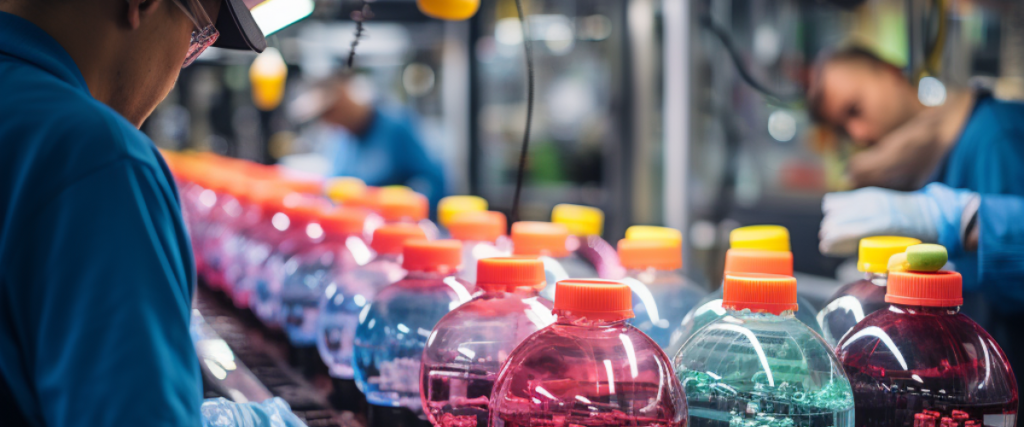| Upsc Relevance-Prelims Focus on schemes like NAMASTE, Plastic Waste Management Rules, EPR Guidelines, and Ayushman Bharat. Understand terms like greenwashing, biodegradable plastics, and institutions like CIEL, UNEP, and OECD involved in global plastic pollution governance. Mains –Relevant for GS Paper 2 (governance, vulnerable sections) and GS Paper 3 (environmental regulation, pollution). Analyze how corporate lobbying, greenwashing, and informal sector integration impact India’s sustainability goals and participation in global environmental treaty negotiations. |
Why in News?
Environmental and health experts have recently raised concerns that the plastic industry, backed by powerful fossil fuel companies, is using tactics similar to the tobacco industry — influencing global policy, misleading the public, and shifting blame onto consumers.
At the same time, the Indian government has started recognising the contribution of informal waste workers and is trying to bring them into the formal waste management system.

Background: What’s the Issue?
- Plastics have become a major environmental hazard, polluting rivers, oceans, and air.
- Most plastics are not recycled — they are either burned, dumped in landfills, or left in the open.
- Globally, there is a push for a UN Treaty on Plastics to regulate production and disposal.
- In India, lakhs of informal workers (like ragpickers) recycle most of the plastic waste but lack recognition and protection.
For example, according to the Central Pollution Control Board (CPCB), India generated over 4.1 million tonnes of plastic waste in 2020–21, of which nearly 60% was processed by informal workers without legal support.
How the Plastic Industry Mirrors Tobacco Industry
The article points out that the plastic industry is copying the same harmful tactics used by the tobacco industry in the past.
1. Shifting Responsibility to Consumers
- Tobacco companies used disclaimers like “smoking is injurious to health” to put the blame on individuals, even while aggressively marketing cigarettes.
- Similarly, plastic producers say, “people should recycle more,” while they keep producing plastic and avoid accountability.
For instance, Coca-Cola has been labelled the world’s top plastic polluter for five years in a row, despite running campaigns urging consumers to recycle more.
Key Point: Both industries try to turn a systemic problem into a personal responsibility.
2. Promoting Misleading Science and PR
- Tobacco companies paid for fake studies to claim cigarettes weren’t harmful.
- The plastic industry also funded misleading campaigns, promoting recycling as a solution from the 1980s—even though they knew large-scale recycling was not practical.
For example, internal documents revealed by NPR (2020) showed that major oil and plastic companies promoted recycling mainly as a public relations strategy despite knowing most plastic couldn’t be recycled.
🟩 Result: People believed they were solving the problem by recycling, but most plastic still ends up as waste.
3. Greenwashing Tactics
- Tobacco companies once sold ‘light’ or ‘mild’ cigarettes, claiming they were safer.
- Today, plastic companies sell products labelled ‘biodegradable’ or ‘compostable’, even though they don’t break down easily in real conditions.
For example, many “oxo-biodegradable” plastic bags sold in Indian cities disintegrate into microplastics but don’t fully decompose, misleading eco-conscious consumers.
🟩 Impact: Consumers feel good about using “eco-friendly” products, but these products often cause the same harm.
Targeting the Global South
As rules against plastic tighten in developed countries (Global North), plastic producers are now focusing on poorer nations (Global South), including India.
- According to OECD (2022), plastic use will double in Africa and triple in Asia by 2060.
- Environmental rules in these countries are often weaker, and waste systems are not strong enough.
- At a major UN meeting on the plastic treaty (INC-3), there were 36% more lobbyists from oil and plastic companies than before.
For example, in 2023, Dow Chemicals and ExxonMobil aggressively lobbied against binding plastic production limits during the UN treaty talks in Nairobi, pushing for voluntary recycling instead.
The plastic industry is pushing its harmful products into regions least prepared to handle the pollution.
Where Does India Stand?
1. Informal Waste Pickers Do Most of the Work
- In India, nearly 70% of all recycled plastic is processed by informal workers — ragpickers, sorters, and small recyclers.
- They do tough and dangerous work:
- Handling hazardous materials
- Burning plastic, which releases toxic fumes
- Working without gloves, masks, or medical support
For instance, in Delhi’s Bhalswa landfill area, thousands of waste pickers work in toxic conditions, many of them children, without any official safety equipment or insurance.
Problem: They are not protected by any law and often live in poverty, despite their essential role in waste management.
2. Steps Taken by the Government
Plastic Waste Management Rules (2016, amended in 2022)
- Introduced Extended Producer Responsibility (EPR): Companies that make plastic must collect and recycle it.
- Banned single-use plastic items like straws, cutlery, and packaging from July 2022.
For example, the ban on plastic straws in 2022 forced major beverage companies like Amul and Mother Dairy to switch to paper alternatives.
NAMASTE Scheme (2024)
- Full name: National Action for Mechanised Sanitation Ecosystem
- Aim: To formally include waste pickers into the government system
- Provides:
- Health insurance through Ayushman Bharat
- Protective gear for safety
- Access to welfare benefits like pensions, bank accounts, and training
- As of May 2025, over 80,000 workers have been registered under this scheme.
For example, under the pilot phase in Bhopal, 2,000 registered waste workers received safety kits, health checkups, and financial inclusion support.
Significance: It is a positive step toward giving dignity, rights, and recognition to the people who keep our cities clean.
Way Forward
Strengthen Regulations
- Enforce eco-labelling standards to prevent fake green claims.
- Punish companies for misleading advertisements and false recyclability claims.
For example, Germany’s Blue Angel eco-label is a successful model India could replicate to regulate and certify truly sustainable packaging.
Support Informal Workers
- Register all waste pickers and give them legal identity cards.
- Provide safety kits, training, and healthcare.
- Include them in urban planning decisions on waste management.
For instance, the SWaCH cooperative in Pune has integrated over 3,000 waste pickers into door-to-door collection services with municipal support.
Global Cooperation
- India and other Global South nations should form an alliance in UN talks to resist corporate lobbying.
- Push for technology sharing and financial aid from developed countries.
At the INC-3 talks, a coalition led by Rwanda and Peru called for legally binding plastic caps — a model India could support.
Conclusion
Plastic pollution is not just about waste—it’s about corporate power, weak regulations, and social injustice. The plastic industry’s influence on green policy needs to be checked. At the same time, India must protect its informal waste pickers, who form the backbone of the recycling system. A cleaner and fairer future depends on strong laws, public awareness, and inclusive policymaking.
| UPSC Prelims Practice Question Q. In India, ‘Extended Producer Responsibility’ was introduced as an important feature in which of the following?(UPSC Prelims 2019) a) The Bio-medical Waste (Management and Handling) Rules, 1998 b) The Recycled Plastic (Manufacturing and Usage) Rules, 1999 c) The e-Waste (Management and Handling) Rules, 2011 d) The Food Safety and Standard Regulations, 2011 Answer: c) The e-Waste (Management and Handling) Rules, 2011 ✍️ UPSC Mains Practice Question GS Paper 3 – Environment Q.The plastic industry is increasingly using tactics similar to the tobacco lobby to delay environmental reforms. In this context, discuss India’s plastic waste crisis and evaluate the steps taken to integrate informal waste workers into formal systems.(250 words) |
SOURCE- THE HINDU
Found this helpful?
Bookmark for revision, Practice the mains question, and
Share with fellow aspirants! THANK YOU
